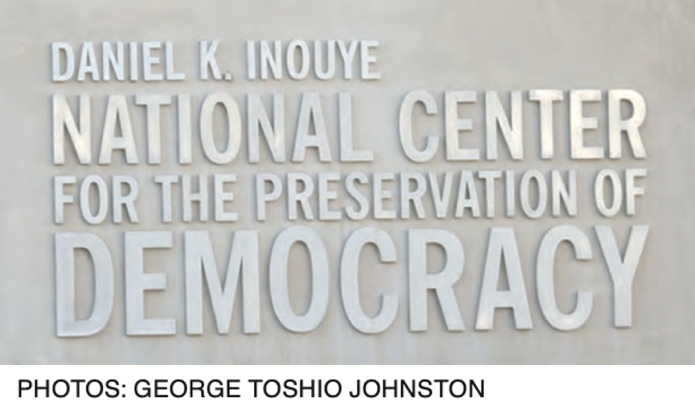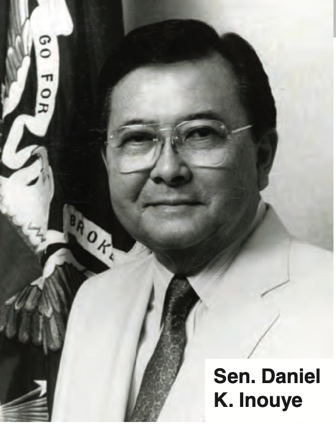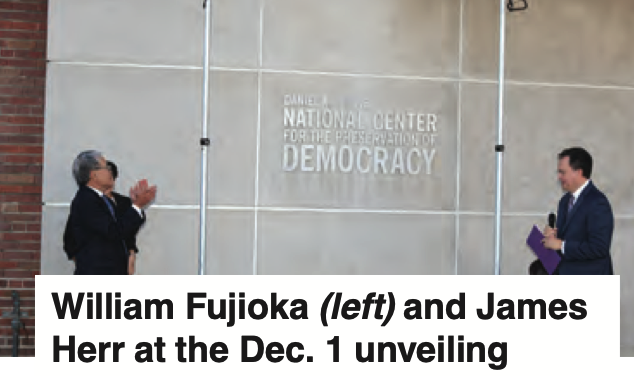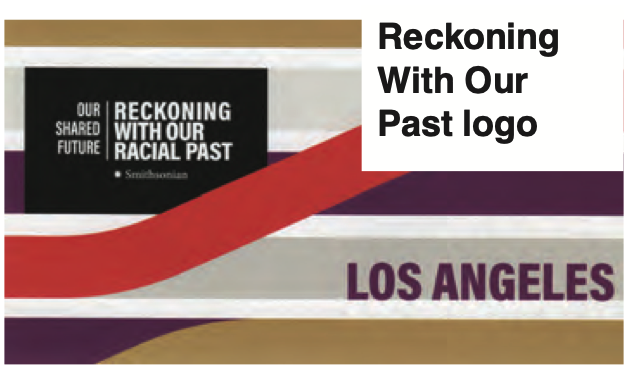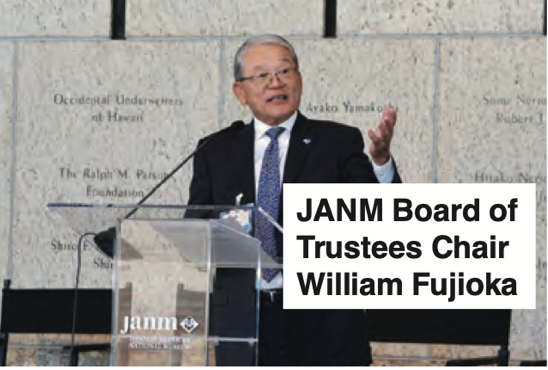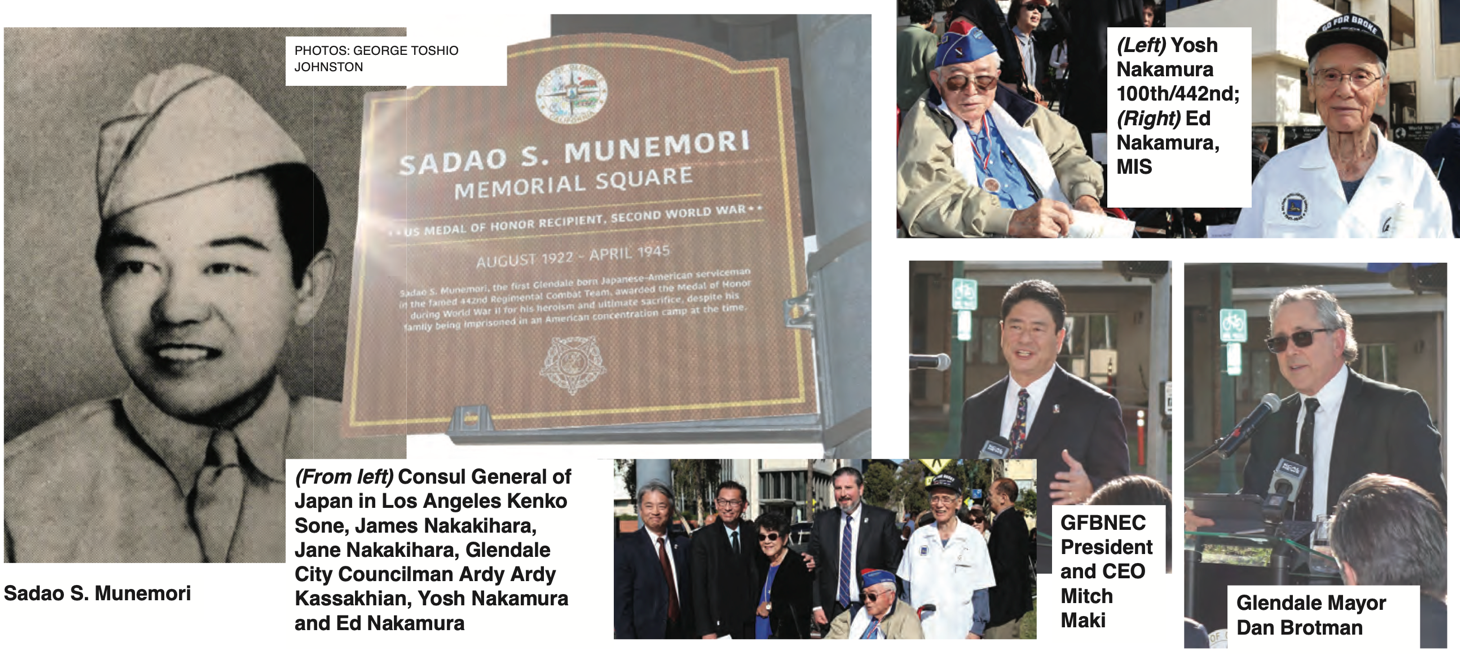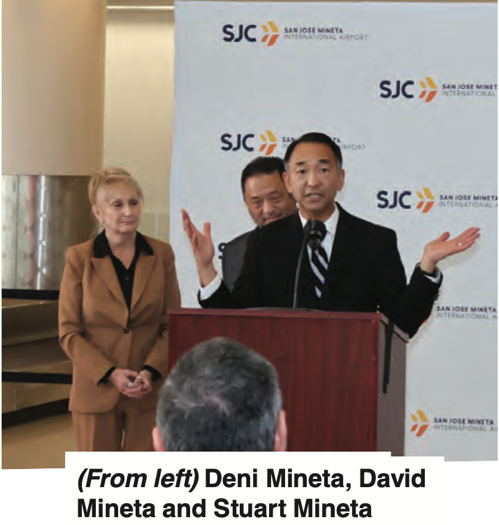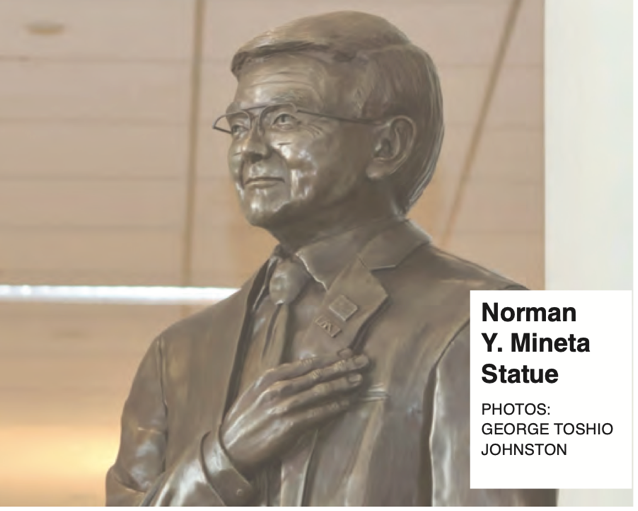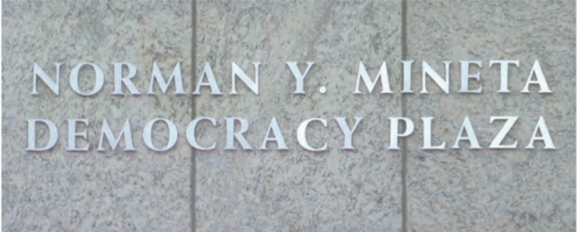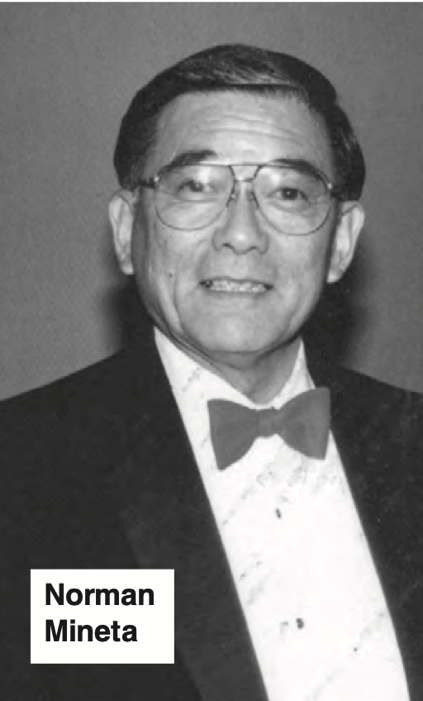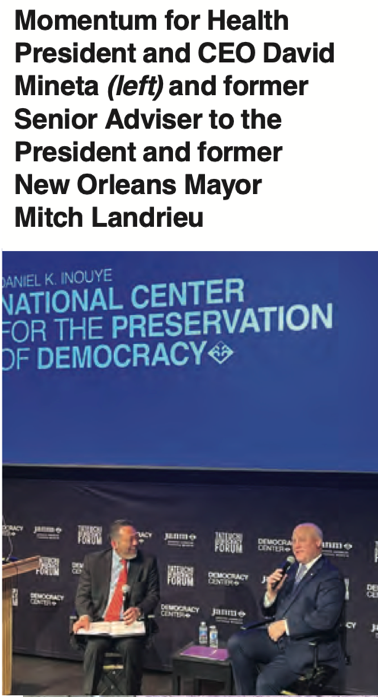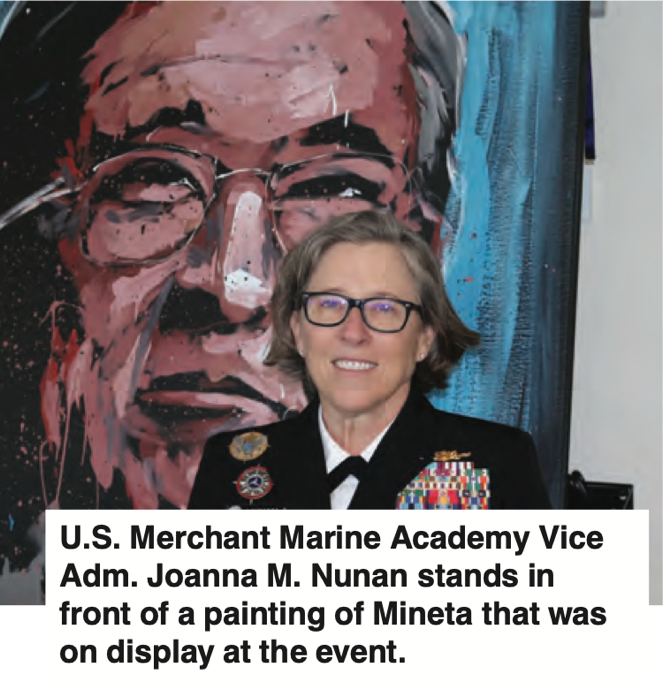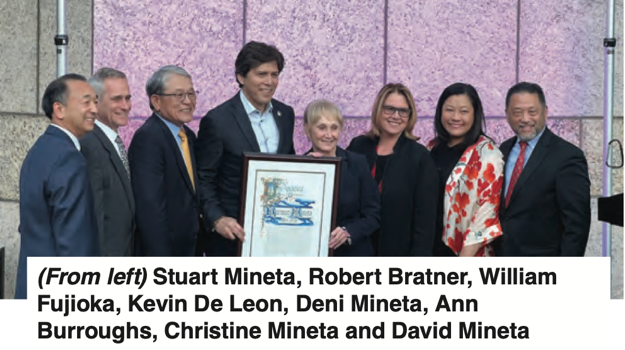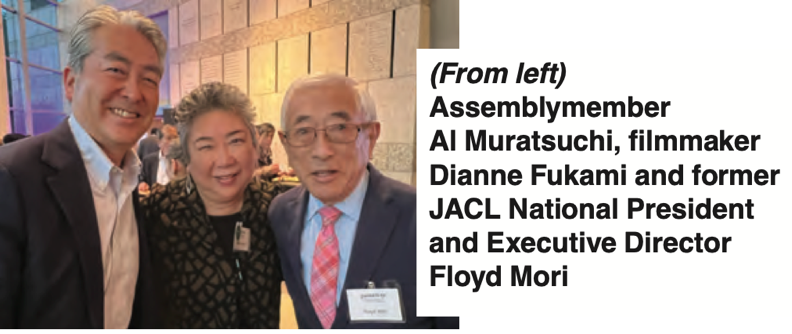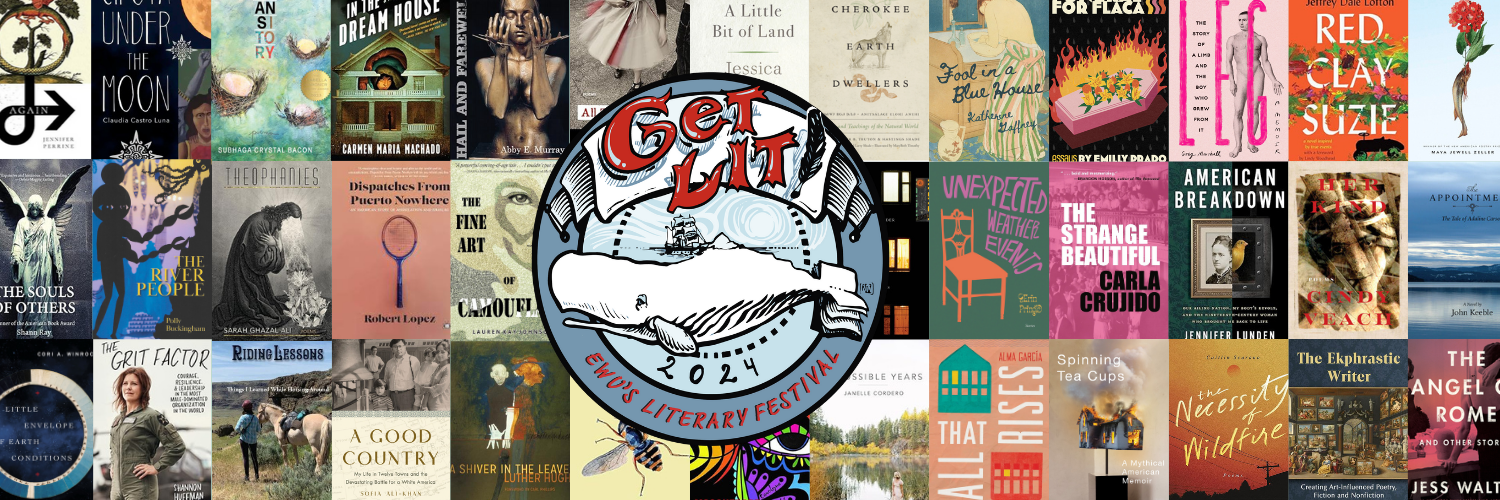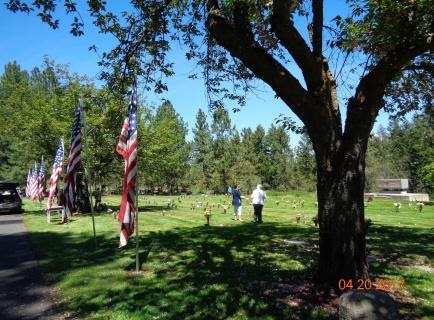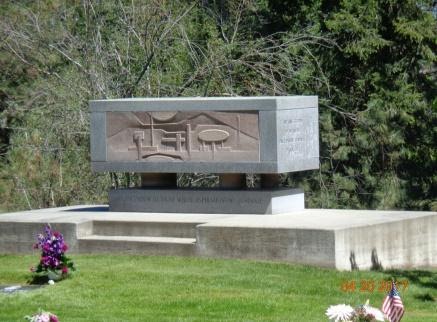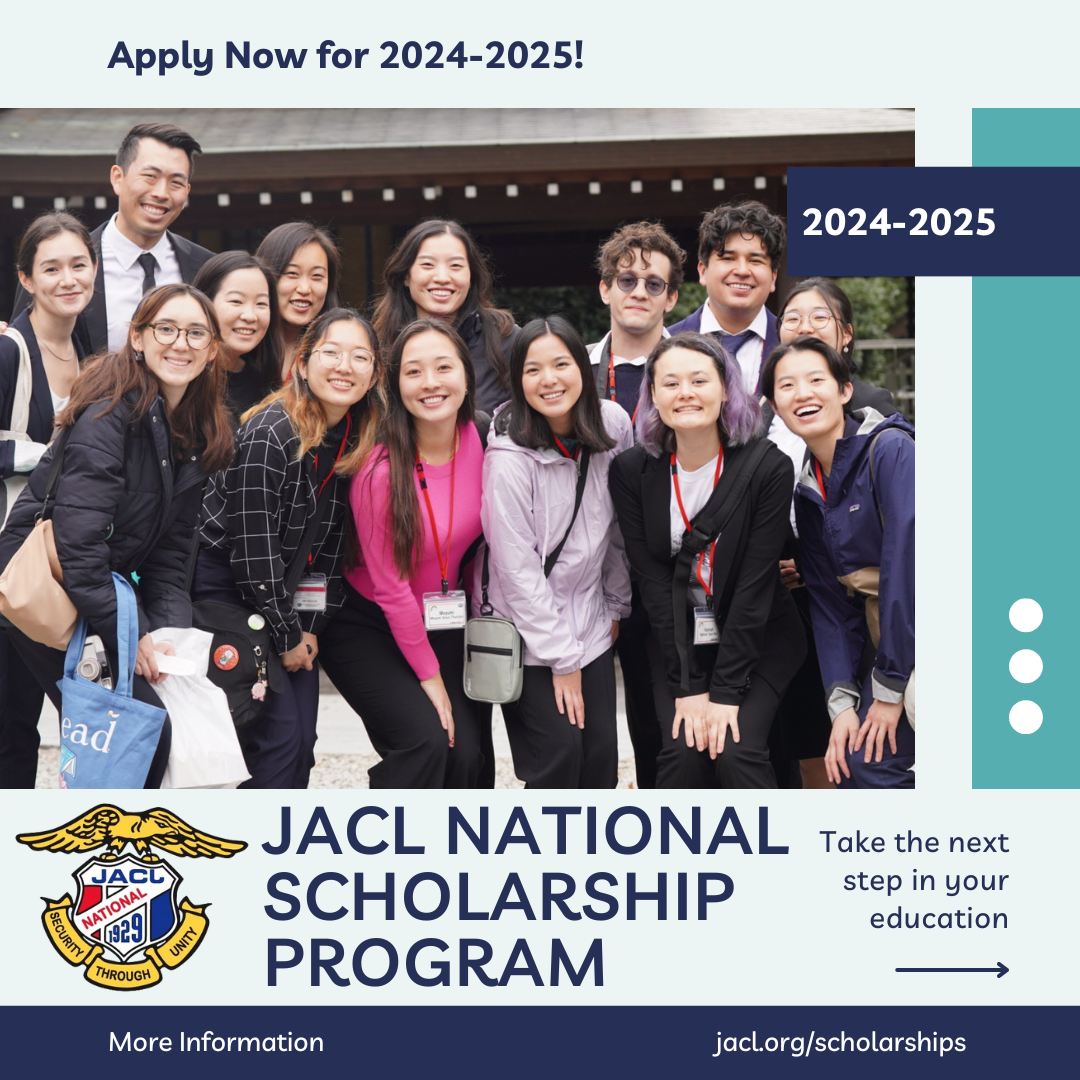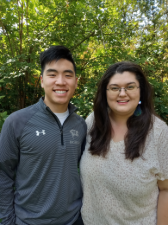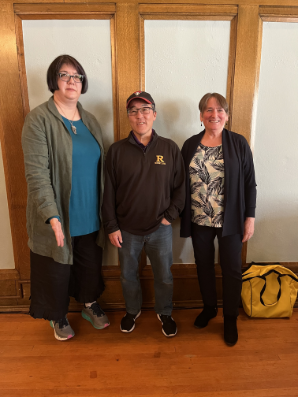|
Visit the third floor of Spokane's Central Library this month to view two exhibits celebrating and honoring the history and legacy of Asian and Asian Americans in the Pacific Northwest and Spokane.
For much of the 20th century, the stretch of blocks between Bernard and Howard along Trent was home to several Asian-run businesses. In particular, Trent Alley, which ran from Bernard to Stevens, became synonymous with Spokane’s Chinese and Japanese communities. Shops, hotels, and offices had primary storefronts along the alley. To date, very little evidence exists about Trent Alley. As we reflect on the wonderful contributions Expo ’74 brought to the Spokane region, we must also shed light on the communities that were impacted as a result. In collaboration with Asians for Collective Liberation and Eastern Washington University, Spokane Public Library proudly showcases Expo Revival: Searching for Trent Alley which includes two impactful exhibits. The main exhibit Searching for Trent Alley: Asian American Footprints in Downtown Spokane helps us trace the areas of downtown that served as home to vibrant Asian communities beginning in the late-1800s despite discriminatory policies and attitudes at national, regional, and local levels. Racist immigration and land laws limited the development of Asian neighborhoods in Spokane. As Expo ‘74 neared, the Asian population downtown had already begun to disperse, moving businesses to areas that allowed for greater opportunities. Expo ’74’s beautification efforts gutted the last surviving remnants of Spokane’s Asian community in Trent Alley. Expo Revival honors the space they inhabited and recognizes the decades of contributions from Japanese, Chinese, Filipino and other Asians who came here for work, were integral parts of the community, but whose histories were erased. Their stories remind us of how people and communities from all backgrounds are woven into a city’s foundations and as we move forward, we can reconsider how we acknowledge their impacts. We Are Made Of Stories is a companion exhibit and is a collection of contemporary artworks submitted by local youths and residents who are telling their own, their families’, or their communities’ stories. We reflect on how we view the stories of the past as they invite us into the stories of today. The exhibits will be on display at Spokane Central Library (third floor) through June 2. Exhibit viewing times: Monday–Thursday 9am– 7pm Friday–Saturday 10am– 5pm Sunday 12– 4pm A new trailer is available for the upcoming JACL documentary film "The League of Dreams," being made in conjunction with filmmaker Lane Nishikawa. The film is currently in its final stages of production and will be screened at the 2024 JACL National Convention this summer. By George Toshio Johnston, P.C. Senior Editor In December 2023 and January 2024, grateful Americans posthumously memorialized three esteemed fellow Americans with tangible reminders for generations to come. Those honorees were Daniel K. Inouye, Sadao S. Munemori and Norman Y. Mineta, two of whom served in Congress, two of whom distinguished themselves on the battlefield in World War II. In the Venn Diagram of how these individuals intersected, Inouye and Munemori both served America as soldiers during WWII as members of the 100th Battalion/442nd Regimental Combat Team with both receiving the military’s highest decoration: the Medal of Honor. Pfc. Munemori, who was killed in action, received his award posthumously in 1946. Capt. Inouye, who lost his right arm in combat, received his recognition - upgraded from the Distinguished Service Cross - in 2000. Inouye and Mineta, meantime, overlapped in politics as members of Congress. Inouye, who died in 2012 at 88, served as a senator from Hawaii, and Mineta, who died in 2022 at 90, served as a representative from California — and would continue to serve the nation as a cabinet member of two different American presidents, as secretary of commerce and secretary of transportation. Both were also instrumental in the campaign to win redress from the federal government for American citizens of Japanese heritage and legal immigrants from Japan barred at the time from becoming naturalized citizens who were incarcerated during WWII. Inouye’s dedication occurred on Dec. 1, 2023; Munemori’s dedication occurred on Dec. 9, 2023; Mineta’s dedications occurred on Jan. 25 and 26, 2024. Honoring Inouye The Japanese American National Museum’s Dec. 1 rededication of its National Center for the Preservation of Democracy to honor Inouye by adding his name to the facility was just one part of the day’s larger agenda. The unveiling of the center’s new name — officially the Daniel K. Inouye National Center for the Preservation of Democracy — was preceded by the first installment of a “collaborative series of public programs” that was led by the Smithsonian through Dec. 17, held in JANM’s soon-to-be renovated Main Hall. The unveiling of the center’s new name — officially the Daniel K. Inouye National Center for the Preservation of Democracy — was preceded by the first installment of a “collaborative series of public programs” that was led by the Smithsonian through Dec. 17, held in JANM’s soon-to-be renovated Main Hall. Under the heading “Our Shared Future: Reckoning With Our Racial Past,” the program sought to explore America’s “history and legacy of race and racism” with the goal to “spark positive social change and build a more equitable shared future.” Representing Los Angeles County Supervisor Hilda L. Solis was Tami Omoto-Frias, who presented commendations to Buckley, Fujioka, keynote speaker Dr. Deborah L. Mack of the Smithsonian National Museum of African American History and Culture and Chinese American Museum Executive Director Michael Truong. Preceding Mack’s keynote address was a welcome video featuring Secretary of the Smithsonian Lonnie Bunch. Mack began by noting that the Smithsonian had “no specialty, no experience in addressing issues of race.” Continuing, she said, “So, we’ve been, in a sense, building this boat as we sail it. We are crafting and developing a team, and it’s important that we document everything that we learn while we are learning from our partners who are very experienced in doing this work.” Next up was the plenary session, titled “Conversations on Race: Opening the Dialogue,” which explored the intersection of race, wealth, wellness and the arts. Moderated by Executive Director of LA Commons Karen Mack, participants included Herr, Buckley, Dr. Muntu Davis of the Los Angeles County Department of Health and California Endowment President and CEO Dr. Robert K. Ross. At 1:30 p.m., the focus of the day shifted to the relaunch of the Democracy Center and the unveiling of its new, official title: the Daniel K. Inouye Center for the Preservation of Democracy. Dignitaries and guests present for the ribbon- cutting ceremony and address by Democracy Center Director Herr included Consul General of Japan in Los Angeles Kenko Sone, KABC TV Channel 7 news anchor David Ono, actor and JANM board of trustees member George Takei, Daniel K. Inouye Institute Director Jennifer Sabas (Inouye’s former chief of staff), Los Angeles City Controller Kenneth Mejia and California Community Foundation President and CEO Miguel Santana. Also attending the day’s events and the relaunch was former JACL National President Floyd D. Shimomura, who is also a member of the JANM board of governors. Asked about the importance of relaunching the Center for the Preservation of Democracy, now with Inouye’s name, he told the Pacific Citizen that democracy seems like “something you learned in the eighth grade.” “It’s really sad to learn that in today’s political environment, about a third of the public doesn’t believe in that anymore,” Shimomura said. “They just believe in the outcome. If the outcome is favorable to them, then it’s legitimate.” In her address, Sabas recalled her years of working for Inouye, including the period when he, Sen. Spark Matsunaga and Reps. Robert Matsui and Mineta were working in concert to pass redress legislation for Japanese Americans. “I had the amazing good fortune to work for Sen. Dan Inouye for more than 25 years in both Washington and Honolulu,” Sabas said. “And I will tell you that it was the most amazing living lesson on leadership. Daniel Inouye led by example. And what he taught us was that when you see something that isn’t right, don’t look away, look at it, say something and then do something.” Remembering Munemori Two days after the 82nd anniversary of the “date that will live in infamy,” Dec. 9, 2023, proved to be a beautiful, sunny day that will be remembered as the occasion that the city of Glendale, Calif., celebrated a native son who died serving his country during WWII. It was on that day when Glendale unveiled signs designating the intersection of E. Broadway and S. Isabel Street — where City Hall is located — as Sadao S. Munemori Square. The outdoor event featured Go for Broke National Education Center President and CEO Mitch Maki serving as master of ceremonies, introducing the city’s mayor and City Councilmembers Ardy Kassakhian, Ara Najarian and Paula Devine; Munemori’s relatives Janet Nakakihara (his niece) and James Nakakihara (his grand-nephew); Consul General of Japan in Los Angeles Kenko Sone; fellow WWII vets Ed Nakamura, who served in the Military Intelligence Service, and Yosh Nakamura, who served in the 442nd Regimental Combat Team; Alhambra City Councilman and Go for Broke National Education Center board member Jeff Maloney, JANM board of trustees Chair William T. Fujioka and Veterans Memorial Court Alliance President Ken Hayashi. Noting how those in the gathered crowd that day did not have the opportunity to have known Sadao “Spud” Munemori several decades earlier when he was a young man growing up in Glendale, Calif., before his family was incarcerated at the Manzanar War Relocation Authority Center while he had already joined the Army before Japan’s attack on Pearl Harbor — and before he joined the 100th Battalion/442nd Regimental Combat Team — Glendale Mayor Dan Brotman said, “We don’t know whether he stood out as a kid growing up in Glendale, whether he exhibited any special bravery or patriotism. But we do know that he stood out at the time when standing out and stepping up meant taking great risk. “He stepped up to fight for his country, even at a time when his family and other Japanese Americans were [forced] into detention camps simply because of their ancestry,” Brotman continued. “He stepped up and went for broke, even when Japanese Americans were segregated into separate fighting units. He stepped up, and he made the ultimate sacrifice.” “That was Sadao Munemori the man — and then there’s Sadao Munemori the message. We live in a time when everything seems to be about glorifying the rich and the famous and the powerful, when the aspiration of so many young people is to be a social media influencer, when the measure of success is how many likes we get on our selfies, when we attack and demean our fellow citizens because we disagree with their beliefs or the way they live. That’s why it’s so important to remember that it wasn’t always this way, and it doesn’t need to be this way. To me Sadao Munemori represents the kind of character we need more of in our community,” Brotman concluded. In his address, Glendale City Councilman Ardy Kassakhian recalled how he had as city clerk walked past a photo in the city hall lobby thousands of times until one day, he stopped to look at the framed photo and read the writing beneath it — and how that planted the seed that culminated in his city honoring Munemori that day. “It was the first time I was familiarized with the story of Sadao ‘Spud’ Munemori. And it hit me that more people don’t know about what this young man did for our country — and more importantly, the sacrifice he made at a time when our country had not treated our Japanese American citizens fairly,” Kassakhian said. “We needed to do more to memorialize his sacrifice and elevate him as an example, as the mayor said, to so many others.” It became Kassakhian’s mission to be the engine behind getting the city to honor its hometown hero. After words from Devine and Sone, Munemori’s great-nephew, James Nakakihara, addressed the audience. Noting that upon learning “Uncle Sadao” was to be honored by the city of Glendale, family members came up with four words to describe their sentiments: “honored,” “grateful,” “hopeful” and “proud.” Paraphrasing from the King James Bible, Nakakihara reminded the audience that “greater love hath no man but than a man lay down his life for his friends.” Nakakihara also told the Pacific Citizen a boyhood memory of when his great-grandmother opened the drawer of the family’s butsudan. “She pulled out the medal and showed it to us,” he said. The family would later entrust Munemori’s Purple Heart and Medal of Honor to the U.S. Army Museum of Hawaii at Fort Derussy on Oahu. Ninety-eight-year-old Yosh Nakamura of Whittier, Calif., who served in the 442nd’s M Co. and says he has been a Pacific Citizen subscriber “for as long as I could remember,” came out in support of Munemori, his fallen comrade-in- arms. He noted that Glendale is only the most-recent city to memorialize him. “Not only Glendale is recognizing him, but the people of Pietrasanta in Italy erected an image of him, and they think of him as a hero for saving their town,” Nakamura noted. Indeed, other memorials to Munemori in Los Angeles County include Sadao S. Munemori Hall at the West Los Angeles U.S. Army Reserve Center and the Sadao S. Munemori Memorial Interchange for the northbound and southbound on-ramps to Interstate 105 from Interstate 405. Also, in 1947, the troop ship Wilson Victory, which brought 100th Battalion/442nd RCT troops back from the war, was renamed the USNS Private Sadao S. Munemori. Memorializing Mineta
In back-to-back ceremonies, fittingly first in his hometown of San Jose, Calif., on Jan. 25 and next in Los Angeles on Jan. 26, Norman Yoshio Mineta received a pair of auspicious honors. The first event took place at Mineta’s namesake airport — San Jose Mineta International Airport, which was named for him in 2001 — when a panoply of family, friends and fans gathered near the baggage claim area of Terminal B. The reason: the unveiling of local sculptor Steve Davis’ six-foot-tall bronze statue of the beloved public servant, standing with his right hand on his heart, on a nearly two-ton granite base inscribed with the names of those people and organizations that donated to the cause, including the San Jose JACL chapter and National JACL. Following a performance by San Jose Taiko Group and a blessing by Rev. John Oda of the Wesley United Methodist Church, Quest Valley Charities Founder and President Rod Diridon (also emeritus executive director of the Mineta Transportation Institute) served as the event’s master of ceremonies. Removing the large white plastic sheet that covered the statue were Mineta’s survivors, sons David Mineta and Stuart Mineta, as well as his widow, Danealia “Deni” Mineta. In his remarks to the gathering, David Mineta said, “He had such deep and meaningful relationships with so many of you — elected, nonelected, the San Jose City staff when he was mayor, his own congressional staff — our extended family. Members of the Japanese American community, members of the larger community, members of other communities of color — it’s what made San Jose naming its airport after him in 2001 so meaningful to him. It was being remembered by your friends on the council and in the community. That’s what made him love his hometown so much.” Other speakers and dignitaries present that day included Quest Valley Charities Chair Colleen Wilcox; San Jose Mineta International Airport Aviation Director John Aitken; U.S. Reps. Anna Eshoo, Rep. Ro Khanna and Rep. Zoe Lofgren; former U.S. Rep. Mike Honda; Department of Homeland Security’s Transportation Security Administration Administrator David Pekoske; United States Merchant Marine Academy Vice Adm. Joanna M. Nunan; California State Sen. Dave Cortese; San Jose Mayor Matt Mahan and former San Jose Mayor Sam Liccardo; Santa Clara County Supervisors President Susan Ellenberg and Santa Clara County Supervisor Cindy Chavez; and JACL National President Larry Oda. In an unusual coda to the ceremony, the private reception that followed the public reception for the statue’s unveiling was abruptly aborted following remarks by Mayor Mahan, Deni Mineta and Stuart Mineta when two audience members collapsed in quick succession, interrupting David Mineta as he was beginning his remarks. As a result, kotoist June Kuramoto and keyboardist Kimo Cornwell never performed, and some of the invitees were unable to finish the catered food. Proving again that not everything can go smoothly and according to plan, the Los Angeles dedication for Mineta also had a couple of unexpected occurrences. The first was a truncated video presentation that preceded the keynote lecture later in the program. Then, during the lecture by Mitch Landrieu, he was interrupted by a heckler who implored him to “let Gaza live” and to “stand against the genocide.” She escorted herself out of the venue before security could do it for her. Other than that, it was smooth sailing when the plaza outside the Japanese American National Museum, between the offices of the Go for Broke National Education Center and the Daniel K. Inouye Center for the Preservation of Democracy, was officially unveiled as the Norman Y. Mineta Democracy Plaza. KABC TV Channel 7 news anchor David Ono served as master of ceremonies and introduced the many distinguished guests who were present to lend their support to the most-recent dedication to Mineta. In a testament to Mineta’s many achievements, the city of Los Angeles declared Dec. 26 to be Norman Mineta Day. Speaking on behalf of JANM was its President and CEO Ann Burroughs and board of trustees Chair William Fujioka. Making the trip down south to Los Angeles from San Jose were Mineta’s sons, David and Stuart, and his widow, Deni Mineta. Among the dignitaries present for the unveiling were Los Angeles Mayor Karen Bass; Los Angeles City Councilman Kevin de Leon; Los Angeles County Supervisor Hilda Solis; Artesia City Councilwoman Melissa Ramoso; Monterey Park City Councilman Thomas Wong; state Assemblymembers Miguel Santiago (54th District), Al Muratsuchi (66th District) and Mike Fong (49th District); Los Angeles County Metropolitan Transportation Authority Deputy CEO Sharon Gookin; Deputy Assistant to the President of the United States and White House Asian American and Pacific Islander Senior Liaison Erika Moritsugu, who brought a letter commemorating the day from President Joe Biden; and Mitch Landrieu, former senior adviser to the president, former mayor of New Orleans and the keynote speaker for the inaugural Norman Y. Mineta Distinguished Lecture. Following Landrieu’s address, held at the Tateuchi Democracy Forum, was a conversation between David Mineta and Landrieu. Tule Lake is under threat AGAIN. The Federal Aviation Administration and Modoc County are attempting to construct a massive 3 mile long, 8-10 foot high security fence on the land where more than 27,000 Japanese Americans were imprisoned during WWII at the Tule Lake concentration camp and Segregation Center.
Our friends at the Tule Lake Committee and citizens all across the nation told the FAA and Modoc County the only way to mitigate damage to the concentration camp site is by NOT building the fence. Ask for a feasibility study that will examine moving an airfield that is an inherently destructive and incompatible use for a concentration camp, an irreplaceable historic civil rights site that cannot be moved. We will keep you updated on this very important issue in future news postings to come. Thursday, April 11, 2024 – Sunday, April 14, 2024
Get Lit!, a non-profit literary arts organization housed within Eastern Washington University, is a four-day festival with readings, writing workshops, craft classes, open mics, panel discussions, literary happy hours, and more. The Spokane Chapter JACL is proud to be a sponsor of this event. For more information please visit the festival's website by clicking on the banner above this text, and if you'd like to support the other 2024 sponsors and community partners you can find a list here. The 2024 JACL Sponsored BOSANKAI SERVICE
Sunday May 19, 2024 at 1 pm at Greenwood Cemetery's Upper Terrace 211 N Government Way, Spokane Each year we recognize and remember the people from the Spokane Japanese community, or those who have strong ties to the Japanese community, who have passed away around prior May to current May of each year. The JACL has been helping students achieve their educational dreams with the National Scholarship and Awards Program since 1946. The program currently offers over 30 awards, with an annual total of over $70,000 in scholarships to qualified students nationwide.
The National Scholarship and Awards Program offers scholarships to students who are entering freshman, undergraduate, graduate, law, in the creative & performing arts, and those with financial need. All scholarships are one-time awards. Please visit the Scholarships page on JACL National's website for more information. The process of applying for a Spokane JACL scholarship in Spring 2024 will mostly remain the same. The one update is that the Scholarship Committee will decide which scholarship will be awarded rather than having the applicant apply for a specific one. As stated in previous years, scholarships will not be awarded on the basis of a single criterion, as factors such as scholastic/academic achievement, involvement in Nikkei and/or Asian community activities, community service acts helping those less fortunate, and intent to pursue a trade school, 2-year or 4-year post-secondary certificate or degree, will all be considered when determining those who receive a scholarship offered by the Spokane JACL. Please return your scholarship application in a timely manner, postmarked no later than May 31, 2024. The May 31 deadline will be in effect each year regardless of which day of the week it lands on in the current calendar year. The Spokane JACL board wishes all applicants the best as you pursue your future dreams and careers. Stay strong, determined to finish what you start as your generation and those that came after our Issei and Nisei community, have been given opportunities to pursue things that they were not able to pursue. This will be your legacy to past generations: that you have completed what you set out to do. Applications may be found on our website at spokanejacl.org under the Scholarship App tab. Completed applications may be scanned and emailed to [email protected] or mailed to: attn: Scholarship Committee Spokane JACL PO Box 2772 Spokane, WA 99220-2772 Justine Kondo was also awarded the Atsuhiko Tateuchi Memorial Scholarship from the Seattle Foundation, which she is using to pay for her Masters in Elementary Teaching Degree. 2023 Scholarship Recipients (Left to Right):
Michael Tsuchida, Justine Kondo, and Tyler Furukawa (not pictured) We will be mailing you a reminder to renew your 2024 membership in January with a postage paid return envelope. Make your check payable to: Spokane JACL (Electronic payment unavailable at this time) All checks need to be mailed to the Spokane Chapter (NOT TO NATIONAL JACL) at: Spokane Chapter JACL Attention: Membership Dues PO Box 2772 Spokane WA 99220-2772 **NEW** Membership Dues - Under 70
Individual - $25 Couple/Family - $50 Student - $25 **Same** Senior Membership Dues - 70+ Senior Individual - $30 Senior Couple - $50 For three years, the Spokane Chapter has supported the annual Get Lit! Festival in Spokane, working with them to bring Japanese American authors to the festival. Get Lit!, a non-profit literary arts organization housed within Eastern Washington University, is a four-day festival with readings, writing workshops, craft classes, open mics, panel discussions, literary happy hours, and more. Our mission is to support authors who share the history, traditions, culture and experiences of Japanese Americans. This year we sponsored “Celebrating the Japanese American Experience with Betsy Aoki and Elaine Cockrell” on April 23, 2023. Betsy Aoki is a poet, fiction writer and game producer, who blends technology and the Asian American experience in her writing. Elaine Cockrell wrote the fiction book “A Shrug of the Shoulders”, about the Portland assembly center, internment camps, and the Farm Security Administration labor camp near Nyssa, Oregon. Photo left to right: Betsy Aoki, Rod Tamura (Board Member of the Spokane Chapter JACL) and Elaine Cockrell
|
|





